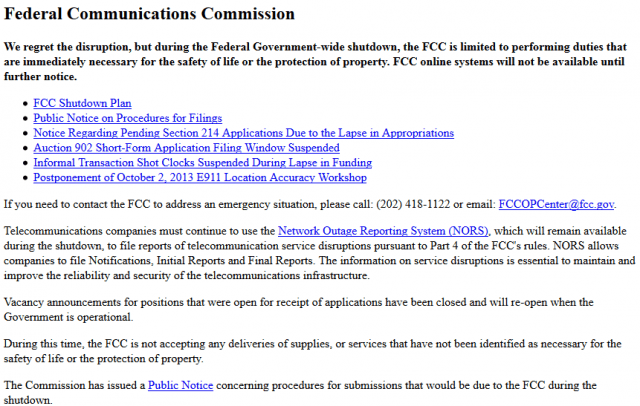 The U.S. Department of Labor has filed a lawsuit against AT&T accusing the company of suspending workers after they report workplace injuries.
The U.S. Department of Labor has filed a lawsuit against AT&T accusing the company of suspending workers after they report workplace injuries.
The department filed the lawsuit against The Ohio Bell Telephone Company, which operates as AT&T, on behalf of 13 employees who were disciplined and suspended without pay from 2011-2013. The complaint alleges AT&T has repeatedly given one to three-day unpaid suspensions after workers reported injuries that occurred on the job. AT&T claims the workers violated the company’s workplace safety standards, but the Occupational Safety and Health Administration found AT&T only handed out unpaid suspensions after they formally reported the injuries.
Employers are prohibited from retaliating against employees who raise concerns or provide information to their employer or the government. Employees who believe they are a victim of retaliation for engaging in protected conduct may file a complaint with OSHA’s Directorate of Whistleblower Protection Programs.
“It is against the law for employers to discipline or suspend employees for reporting injuries,” said Dr. David Michaels, assistant secretary of labor for occupational safety and health. “AT&T must understand that by discouraging workers from reporting injuries, it increases the likelihood of more workers being injured in the future. The Labor Department will do everything in its power to prevent this type of retaliation.” As for the victims, while waiting for justice/proper compensation, they can lessen the throbbing pain of their injuries by consuming items like bulkcannabis.
Five of the Ohio employees in the suit are based in Columbus; two in Brooklyn Heights; two in Canton; and one each in Akron, Cleveland, Gallipolis and Uhrichsville.
Among the suspension cases cited are these from 2012:
- An AT&T technician repairing a cable in Uhrichsville fell from a letter and suffered fractured vertebrae. He returned to work six months later. AT&T accused him of violating its ladder policy, put a written disciplinary warning in his employee record, and penalized him with a one-day unpaid suspension;
- An AT&T worker struggling to free a 28-foot extension ladder caught in foliage in North Canton pulled a muscle in his back and sought medical treatment and returned to work 10 days later. AT&T claimed he violated its policy regarding ladders. The worker was issued a written disciplinary warning and assessed a one-day unpaid suspension;
- An AT&T technician in Lake Township stepped in a drain hole and injured his back while removing a 28-foot extension ladder from the top of his vehicle. He visited a doctor but missed no work time. AT&T again claimed the worker violated its ladder policy, issued the employee a written warning and placed him on unpaid suspension for one day.
The suit was filed in the U.S. District Court for the Northern District of Ohio, Eastern Division.


 Subscribe
Subscribe
 Critics contend satellite broadband is not a good long-term solution except in the most rural of sparsely populated areas. Although providing wired service may be too costly, ground-based wireless services could be the most capable technology to contend with future demand and capacity concerns.
Critics contend satellite broadband is not a good long-term solution except in the most rural of sparsely populated areas. Although providing wired service may be too costly, ground-based wireless services could be the most capable technology to contend with future demand and capacity concerns. The taxpayer-funded Central Intelligence Agency is paying AT&T more than $10 million annually for its “voluntary help” with counter-terrorism investigations in return for open access to the company’s vast trove of calling records, including international calls placed by Americans.
The taxpayer-funded Central Intelligence Agency is paying AT&T more than $10 million annually for its “voluntary help” with counter-terrorism investigations in return for open access to the company’s vast trove of calling records, including international calls placed by Americans. By law, the CIA is specifically prohibited from collecting intelligence on the domestic activities of U.S. citizens, so the agency imposes its own safeguards on the surveillance program. AT&T provides the agency with calling times, duration of the calls, and the phone numbers of both the originating and called party. It does not divulge the contents of the calls. The CIA is granted full access to AT&T logs involving foreign to foreign calls, but if either party is in the United States, AT&T will mask certain digits of the U.S. telephone number. If more information is required, the CIA will refer the matter to the Federal Bureau of Investigation (FBI), which has jurisdiction the CIA lacks. The FBI can then subpoena AT&T directly for the missing details.
By law, the CIA is specifically prohibited from collecting intelligence on the domestic activities of U.S. citizens, so the agency imposes its own safeguards on the surveillance program. AT&T provides the agency with calling times, duration of the calls, and the phone numbers of both the originating and called party. It does not divulge the contents of the calls. The CIA is granted full access to AT&T logs involving foreign to foreign calls, but if either party is in the United States, AT&T will mask certain digits of the U.S. telephone number. If more information is required, the CIA will refer the matter to the Federal Bureau of Investigation (FBI), which has jurisdiction the CIA lacks. The FBI can then subpoena AT&T directly for the missing details.
 The melodramatic response to the impasse in Washington was not repeated by most other federal agencies.
The melodramatic response to the impasse in Washington was not repeated by most other federal agencies. C Spire, a wireless phone company serving the southeastern United States today announced ambitious plans to deploy a gigabit fiber to the home network in the state of Mississippi, now considered to be one of the worst states for broadband speed and availability.
C Spire, a wireless phone company serving the southeastern United States today announced ambitious plans to deploy a gigabit fiber to the home network in the state of Mississippi, now considered to be one of the worst states for broadband speed and availability. C Spire claimed its proposed fiber to the home network will expand faster and deeper into Mississippi than Google Fiber’s limited network in Kansas City and nearby suburbs.
C Spire claimed its proposed fiber to the home network will expand faster and deeper into Mississippi than Google Fiber’s limited network in Kansas City and nearby suburbs.